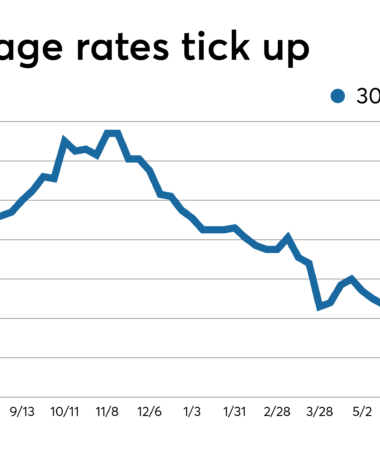The banking sector in India has emerged as one of the most sought-after career paths for students completing their higher secondary education. With the rapid growth of the financial services industry, the demand for skilled professionals in banking has surged, leading to a plethora of opportunities for young aspirants. Banking exams serve as a gateway for students to enter this lucrative field, offering a structured pathway to secure positions in various banking institutions.
These exams not only assess the candidates’ aptitude and knowledge but also play a crucial role in determining their suitability for various roles within the banking sector. The allure of a stable job, attractive salary packages, and numerous growth opportunities makes banking exams particularly appealing to students after 12th grade. The competitive nature of these exams necessitates a thorough understanding of the subjects involved, including quantitative aptitude, reasoning ability, and general awareness.
As students embark on this journey, they must be equipped with the right information and strategies to navigate the complexities of the examination process effectively. This article delves into the various aspects of banking exams, including eligibility criteria, popular exams, preparation tips, and career opportunities in the banking and finance sector.
Key Takeaways
- Banking exams after 12th are a great way for students to kickstart their career in the finance industry.
- Eligibility criteria for banking exams usually include a minimum age limit, educational qualifications, and nationality requirements.
- Popular banking exams in India include the IBPS PO, SBI PO, RBI Grade B, and NABARD exams.
- Preparation tips for banking exams include creating a study schedule, practicing previous year question papers, and staying updated with current affairs.
- Career opportunities in banking and finance include roles in retail banking, investment banking, financial analysis, and risk management.
Eligibility Criteria for Banking Exams
Understanding the eligibility criteria for banking exams is essential for aspiring candidates. Generally, most banking exams require candidates to have completed their 12th grade from a recognized board. However, specific requirements may vary depending on the exam and the position being applied for.
For instance, while some exams may allow candidates with a minimum percentage in their 12th-grade examinations, others may require a graduate degree. Additionally, age limits are often imposed, typically ranging from 18 to 28 years for entry-level positions, although there are relaxations for candidates belonging to reserved categories. Moreover, certain banking exams may have specific educational qualifications that candidates must meet.
For example, the Institute of Banking Personnel Selection (IBPS) conducts exams for various positions in public sector banks, and candidates applying for clerical positions must have at least a 12th-grade certificate with a minimum percentage. In contrast, those aiming for probationary officer roles usually need to possess a bachelor’s degree in any discipline. Understanding these nuances is crucial for candidates to ensure they meet all necessary requirements before applying for their desired banking exams.
Popular Banking Exams in India

In India, several prominent banking exams cater to different roles within the banking sector. The most recognized among these is the IBPS exam, which conducts recruitment for various public sector banks. The IBPS conducts multiple exams throughout the year, including the IBPS PO (Probationary Officer), IBPS Clerk, and IBPS RRB (Regional Rural Banks) exams.
Each of these exams has its own syllabus and selection process, making it essential for candidates to familiarize themselves with the specific requirements of each. Another significant exam is the SBI PO exam conducted by the State Bank of India. This exam is highly competitive and is known for its rigorous selection process.
Candidates aspiring to work in one of India’s largest public sector banks often target this exam due to the prestige associated with SBI positions. Additionally, there are specialized exams like the RBI Grade B exam for those looking to work with the Reserve Bank of India, which is considered one of the most prestigious financial institutions in the country. Each of these exams presents unique challenges and opportunities, making it imperative for candidates to choose wisely based on their career aspirations.
Preparation Tips for Banking Exams
| Preparation Tips for Banking Exams |
|---|
| 1. Understand the Exam Pattern |
| 2. Create a Study Plan |
| 3. Focus on Basics |
| 4. Practice Regularly |
| 5. Solve Previous Year Papers |
| 6. Stay Updated with Current Affairs |
| 7. Take Mock Tests |
| 8. Time Management |
Preparing for banking exams requires a strategic approach that encompasses understanding the exam pattern, syllabus, and effective study techniques. One of the first steps candidates should take is to familiarize themselves with the exam structure and types of questions that are typically asked. Most banking exams consist of sections such as quantitative aptitude, reasoning ability, English language proficiency, and general awareness.
By understanding the weightage of each section, candidates can allocate their study time accordingly. Creating a well-structured study plan is crucial for effective preparation. Candidates should set realistic goals and break down their study material into manageable segments.
Regular practice through mock tests and previous years’ question papers can significantly enhance a candidate’s performance. These practice sessions not only help in identifying strengths and weaknesses but also build confidence in tackling different types of questions under timed conditions. Additionally, staying updated with current affairs and financial news is vital, as general awareness plays a significant role in many banking exams.
Career Opportunities in Banking and Finance
The banking sector offers a diverse range of career opportunities that extend beyond traditional roles such as bank clerks and probationary officers. With advancements in technology and changes in consumer behavior, new roles have emerged within the industry. For instance, positions in financial analysis, risk management, investment banking, and wealth management are gaining traction among graduates seeking careers in finance.
These roles often require specialized knowledge and skills but can lead to lucrative career paths. Moreover, the rise of fintech companies has further expanded career options within the financial services industry. These companies leverage technology to provide innovative financial solutions, creating demand for professionals skilled in data analysis, software development, and digital marketing within the banking domain.
As traditional banks adapt to these changes by incorporating technology into their operations, opportunities for career advancement continue to grow. This dynamic landscape makes it an exciting time for young professionals entering the banking and finance sector.
Importance of Banking Exams in Securing a Career in Finance

Banking exams serve as a critical stepping stone for individuals aspiring to build a career in finance. They not only assess candidates’ knowledge and skills but also provide a standardized method for banks to evaluate potential employees. The rigorous selection process ensures that only qualified individuals are chosen for various roles within the banking sector, thereby maintaining high standards of service and professionalism.
Furthermore, success in these exams often leads to job security and attractive remuneration packages. Many public sector banks offer competitive salaries along with additional benefits such as health insurance, retirement plans, and opportunities for professional development. The structured nature of career progression within banks also allows employees to advance through various levels based on performance and experience.
This stability and growth potential make banking exams an essential component for anyone looking to establish a successful career in finance.
Resources for Banking Exam Preparation
A plethora of resources is available to assist candidates in their preparation for banking exams. Numerous coaching institutes across India offer specialized training programs tailored to banking aspirants. These institutes provide comprehensive study materials, expert guidance, and mock tests designed to simulate real exam conditions.
Additionally, online platforms have gained popularity in recent years, offering video lectures, interactive quizzes, and personalized study plans that cater to individual learning styles. Books specifically designed for banking exam preparation are also invaluable resources. Titles authored by experts in quantitative aptitude, reasoning ability, and general awareness can provide candidates with a solid foundation in these subjects.
Furthermore, online forums and study groups can facilitate peer learning and provide support during preparation. Engaging with fellow aspirants allows candidates to share tips, resources, and strategies that can enhance their overall preparation experience.
Conclusion and Next Steps
As students transition from high school to higher education or professional careers, pursuing banking exams after 12th grade presents an excellent opportunity to enter a thriving industry. With a clear understanding of eligibility criteria, popular exams, preparation strategies, and available resources, aspiring candidates can embark on their journey toward securing a position in the banking sector with confidence. The importance of thorough preparation cannot be overstated; it is essential for achieving success in these competitive examinations.
For those ready to take the next step, it is advisable to start by researching specific banking exams that align with their career goals. Creating a study plan that incorporates regular practice and staying updated on current affairs will be crucial in building a strong foundation for success. Engaging with mentors or joining study groups can also provide valuable insights and motivation throughout this challenging yet rewarding journey into the world of banking and finance.
FAQs
What are banking exams after 12th?
Banking exams after 12th are competitive exams conducted by various banks and financial institutions for recruitment of candidates for various positions such as Probationary Officer (PO), Clerk, and Specialist Officer.
What are the eligibility criteria for banking exams after 12th?
The eligibility criteria for banking exams after 12th vary from exam to exam and from bank to bank. However, in general, candidates must have completed their 12th standard or equivalent from a recognized board or university with a minimum percentage as specified by the respective bank.
What are some popular banking exams after 12th?
Some popular banking exams after 12th include SBI PO, IBPS PO, IBPS Clerk, SBI Clerk, RBI Grade B, and IBPS SO. These exams are conducted at the national level and are highly competitive.
What is the exam pattern for banking exams after 12th?
The exam pattern for banking exams after 12th typically includes sections on English Language, Quantitative Aptitude, Reasoning Ability, General Awareness, and Computer Knowledge. The exams may be conducted in online or offline mode and may also include a descriptive test and/or an interview round.
How can I prepare for banking exams after 12th?
To prepare for banking exams after 12th, candidates can start by familiarizing themselves with the exam pattern and syllabus. They can then study from relevant books and online resources, solve previous years’ question papers, and take mock tests to assess their preparation. Joining a coaching institute or online course may also be beneficial.








